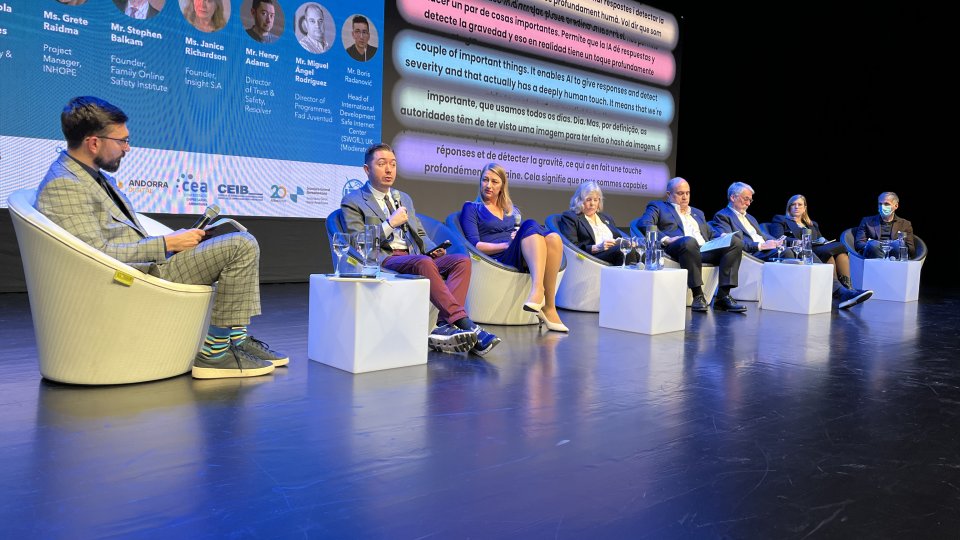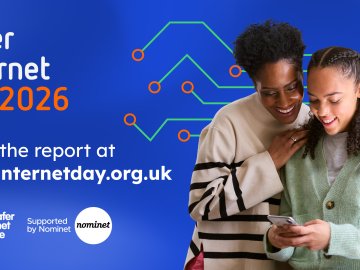Over the past week, SWGfL has contributed to two major international forums in Europe sharing our expertise around protections against technology-facilitated harm.
EU Workshop on Combating Violence Against Women and Domestic Violence
At the 2nd Workshop with EU Member States on the implementation of Directive (EU) 2024/1385, SWGfL’s Boris Radanović, Head of International Development, addressed European policymakers on the growing challenge of technology-facilitated gender-based violence.
Drawing on our 25 years of work in online safety and leadership in supporting victims of non-consensual intimate image abuse (NCII), Boris highlighted the scale of the issue across Europe, and the stark reality of how many individuals are affected (an estimated 3.25 million women affected annually.)
He shared insights from our helpline services, including the Revenge Porn Helpline, which has supported tens of thousands of victims and continues to achieve a 90% removal rate for reported content, as well as StopNCII.org which continues to be seen as a leading global example of using technology to prevent harm before it happens.
In his speech, Boris called for coordinated EU action and survivor-centred implementation of the Directive, outlining four key areas for progress:
Consistent definitions of intimate material across Member States
Jurisdictional clarity in cross-border cases
Fast, trauma-informed support for victims
Cooperation between governments, civil society, and technology platforms
“Europe has the legislation, the technology, and the expertise to lead,” Boris concluded. “What we need now is coherence, coordination, and the will to act. We can only tackle this together, and we must.”
Andorra Digital Forum: Addressing AI Challenges in Child Online Protection
At the Andorra Digital Forum and ITU Global Symposium, Boris Radanović moderated the high-level panel “Addressing AI Challenges in Child Online Protection,” bringing together leading organisations including the UN, ITU, INHOPE, FOSI, Insight S.A., Fad Juventud, Resolver, Eurochild, and Fundació Andorra Recerca i Innovació.
The session explored how artificial intelligence can both enhance and complicate efforts to keep children safe online. Discussions ranged from AI-driven detection of harmful content to ethical boundaries, privacy, and the essential role of young people as digital citizens.
From cyberbullying and sextortion to child sexual abuse material (CSAM) and AI-generated synthetic abuse content, the landscape of harm is evolving faster than ever. Yet, as the panel discussed, the goal remains constant: ensuring that every child can explore the digital world safely, with dignity and trust.
“AI can help us detect abuse faster and protect children at scale,” Boris noted. “But it can also be used to deceive, manipulate, or replicate human cruelty. Our task is to shape AI with the same values that have guided Child Online Protection from the start: dignity, safety, and trust.”
The panel underscored the need for transparency, collaboration, and education, ensuring that technological solutions remain human-centred and grounded in children’s rights.
Closing the session, Boris reflected: “If the past thirty years of Child Online Protection have taught us anything, it’s that safety grows through every act of care. Let’s make sure AI grows the same way.”
Continuing the Global Mission
Through its participation in these two events, SWGfL continues to contribute to the development of policy, technology, and frameworks that promote safer digital spaces, from preventing image-based abuse to ensuring AI is used responsibly in child protection. We look forward to sharing our expertise in many more of these essential discussions.






